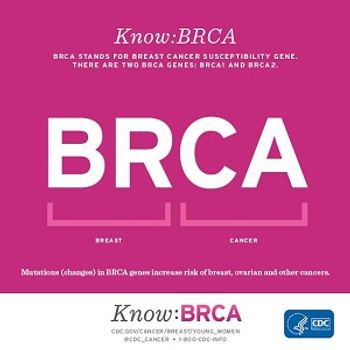
Oncology
Latest News
Latest Videos

CME Content
More News

The majority of countries could see an end to cervical cancer as a public health problem by 2060, according to a new study in The Lancet Oncology.

The update follows a study published in November that found almost no difference in the frequency of mutations between patients with breast cancer who met National Comprehensive Cancer Network guidelines and those who didn't.

Worldwide, more than half a million new cases of hepatocellular carcinoma (HCC) are diagnosed annually. The incidence of HCC in the United States is rising with an estimated 31,000 new cases in 2018. Disease prognosis remains poor, with a 5-year survival rate across all disease stages estimated between 10%-20%, and 3% for those diagnosed with distant disease. Although morbidity is significant, especially among patients with advanced-stage disease, limited information exists on the humanistic and economic burden of HCC.

Every week, The American Journal of Managed Care® recaps the top managed care news of the week, and you can now listen to it on our podcast, Managed Care Cast.

AJMC®TV interviews let you catch up on what’s new and important about changes in healthcare, with insights from key decision makers—from the clinician, to the health plan leader, to the regulator. When every minute in your day matters, AJMC®TV interviews keep you informed. Access the video clips at ajmc.com/interviews.

Minimal residual disease (MRD) is a strong prognosticator of cancer outcomes, and recent research found that patients with relapsed/refractory multiple myeloma (MM) are more likely to achieve MRD on daratumumab than on a standard of care alone.



Andrew Pecora, MD, FACP, CPE, recently visited Evidence-Based OncologyTM to discuss the progress of COTA’s, a company created in 2011 to develop technology that Pecora said is poised to transform cancer care delivery by helping oncologists and other specialists make decisions that will yield the best outcomes in the most cost-effective way, all at the point of care.

Evidence-Based OncologyTM recently sat down with Rodabe Amaria, MD, assistant professor in the Department of Melanoma Medical Oncology, Division of Cancer Medicine, at MD Anderson and a lead author on a study that found that evidence has been accumulating in preclinical models that neoadjuvant treatment may be superior to treatment after surgery for patients with advanced melanoma.

Half of children in with treatable mental health disorders in the United States do not get treatment; a small study demonstrated benefit with immunotherapy for glioblastoma; a task force recommends counseling services for new mothers at risk of depression.

While one-third of primary care providers (PCPs) reported participating in breast cancer treatment decisions with their patients, a significant amount of them also indicated that they were not comfortable or did not feel that they had the necessary knowledge to participate in the treatment decision-making process.

Immunotherapy has seen great success in the treatment of numerous cancers, from melanoma to lung, breast, colorectal, kidney, and even some brain cancers. But thus far, despite several attempts, the devastating brain disease glioblastoma has not been among the immunotherapy success stories. In fact, glioblastoma researchers have had few advances in more than a decade.

From her vantage point at Rutgers Cancer Institute of New Jersey, Janice Mehnert, MD, has had a front-row seat to the immuno-oncology revolution. Mehnert returned to her alma mater in 2007, and since 2014, she has headed Rutgers’ Phase I/ Developmental Therapeutics Program; she is also head of the melanoma research team. Her work on the KEYNOTE-028 trial has produced important results in multiple cancers, including neuroendocrine tumors, thyroid cancer, small cell lung cancer, and, recently, advanced ovarian cancer.

Experts at the “Paying for Cures: Ensuring patient access and system sustainability" event discussed how the healthcare system can pay for curative therapies that have high upfront costs with benefits that accrue over time.

Preventive screening and treatment advances have contributed to saving lives for patients with breast cancer. A new study has identified that these changes could be responsible for averting up to 614,500 breast cancer deaths since 1989.

Two studies presented at the 60th American Society of Hematology Annual Meeting and Exposition examined patient preferences in multiple myeloma (MM) treatment and the importance of understanding these preferences when making treatment decisions.

Podcast: This Week in Managed Care—State of the Union Health Initiatives and Other Health News
Every week, The American Journal of Managed Care® recaps the top managed care news of the week, and you can now listen to it on our podcast, Managed Care Cast.

Once identified, ovarian tumors are usually surgically removed due to the presumed risk of complications associated with the diagnosis. Researchers recently looked to evaluate the incidence of cyst complications and malignancy during the first 2 years of follow-up after the tumors were classified as benign.

During his second State of the Union address, President Trump highlighted past bipartisan accomplishments, such as legislation to confront the opioid crisis, but also outlined future priorities, such as addressing the cost of healthcare and prescription drugs.

Cancers related to obesity are on the rise, especially among millennials; a right-to-try advocate is receiving treatment for his amyotrophic lateral sclerosis under the new law; and women's brains age more slowly than men's.

Foundation Medicine announced that it has won a nationwide contract from the Department of Veterans Affairs National Precision Oncology Program. The contract covers all of Foundation Medicine’s tests.

Chronic pain accounted for 62.2% of all patient-reported qualifying conditions under which US patients sought medical marijuana, according to a new paper in Health Affairs.

Every week, The American Journal of Managed Care® recaps the top managed care news of the week, and you can now listen to it on our podcast, Managed Care Cast.

Abstracts presented at the 60th American Society of Hematology Annual Meeting & Exposition looked at how monitoring minimal residual disease can help predict outcomes in acute myeloid leukemia (AML).
















